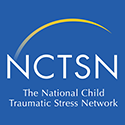
From the Field
Contributions from practitioners on behalf of children and families.
- Exposing the Impacts of Physical Restraint Use on Carers (2020)
- Using Run Away Behavior to Examine The Importance of Responding to Crisis with Purpose (2019)
- Martha Holden's Reflections on "The Other 23 Hours" (2018)
- Youth Voice Band/CARE Principles in Action: Part 4 (2017)
- Youth Voice Band/CARE Principles in Action: Part 3 (2017)
- Youth Voice Band/CARE Principles in Action: Part 2 (2017)
- Youth Voice Band/CARE Principles in Action: Part 1 (2016)
- Making CARE Planning Less Complicated: A Template for Better Implementation (2016)
“It’s just a part of the job, Carers know what they signed up for.”
Exposing the impacts of physical restraint use on Carers in the Australian out-of-home care sector.
In these last few months, many of the discussions we have had with agencies and trainers have focused on how to support staff caring for children in situations that may become stressful and even potentially dangerous. The use of restraint, in particular, is a topic that evokes many emotions yet we may not often make it a priority to check in with staff about their experiences.
We would like to share a paper written by one of our very own colleagues, Ben Jones. Ben is the Manager of Learning and Development at Allambi Care in New South Wales, Australia. He also leads TACT Training and Consultancy which provides the TCI trainer courses in Australia. For his Capstone project at the University, Ben chose to focus on the experience of caregivers who are faced with the use of physical restraint while working. The value of reflective supervision is something that Ben is passionate about and we hope this paper may inspire some important conversations within your teams.
Using Run Away Behavior to Examine The Importance of Responding to Crisis with Purpose
The field of residential care is one that is filled with many caring and supportive individuals and facilities who truly desire to do good work with children and young people. There are certainly variations in overall quality of care, yet a common thread of perceived “good intentions” is likely woven into the fabric of most who provide services to our youth. And there is little doubt that well-intended agencies and individuals are able to achieve some degree of positive, healing outcomes. Yet, a stark and sad reality exists – for despite the best of our intentions in our practice, tragic events still occur.
Martha Holden’s reflections on “The Other 23 Hours”
Martha Holden, Director of the Residential Child Care Project was invited to write a commentary of the book, The Other 23 Hours: Child-care Work with Emotionally Disturbed Children in a Therapeutic Milieu, by Albert E. Trieschman, James Whittaker, and Larry Brendtro.
In exploring the therapeutic milieu in working with children, the book remains transformative and relevant for those who work with children in group settings even 50 years after it was first published.
In reflecting on this book, via a personal journey through her career, Martha shows its impact and relevance to both her individual career and the field of residential child care. She also shares the influence the authors themselves had on her life throughout this personal journey. In doing so, combined with what we know today through recent translational research and implementation work, Martha shows just how foundational “The Other 23 Hours” is for those working with children on a daily basis.
You can read Martha’s reflections on “The Other 23 Hours” by clicking on the link below:
https://www.tandfonline.com/toc/wrtc20/36/1?nav=tocList
Feature Story 4 (4th in a series): Youth Voice Band/CARE Principles in Action…
There was an early version of The Youth Voice Band that was larger than most of our bands at that time that included myself and five young people. The band lasted longer than most of our bands at that time and over the course of more than a year we had the same drummer, keyboard player and guitarist, only one change at bass, and I believe four different lead vocalists.
When our original bass player was discharged from our Hillside program, we held auditions and chose who we thought would best replace him. When the new person Nick came to his first full rehearsal, before I had a chance to give him my usual orientation speech, Donnie, our keyboard player, asked if he could do it. I said, “Of course.”
“Welcome to the band, Nick. It’s a lot of fun and we’re glad to have you, but it’s also a lot of work. You’ve got to be at every rehearsal. If you absolutely have to miss a rehearsal you must give Kim as much notice as you can. We all depend on each other. We need every member here to make rehearsals productive. And once you learn a song Kim is going to make you practice it over and over until you start hating it. You’re even going to start hating Kim a little bit. All of us remember how bored we got with the first four songs we learned and how much we hated playing them over and over again. But then you walk into the recording studio or onto a stage in front of two hundred people…well, you’re going to look out at those people and feel a little nervous but the other thing you’re going to feel is confident. I remember thinking I was going to panic the first time we played in front of a big crowd, but instead I walked out onto that stage and thought, 'I got this'….and that’s when you know what a good thing it was to play those songs so many times that you could play them in your sleep.”
Practical CARE moments in this story can be seen in the strong relationship between staff and youth along with competence-centered through the peer-peer interaction about the importance of practicing.
Click here to listen to a song by the Youth Voice Band called "The Misunderstood".
Feature Story 3 (3rd in a series): Youth Voice Band/Care Principles in Action…
This latest article, written by Kim Draheim, is a follow-up to the first article and continues the story about how the Youth Voice Band personifies the CARE principles in action.
Background: In June 2016, RCCP had the priviledge and the pleasure of opening our international conference with an extremely heartfelt and emotional musical performance by the Youth Voice Band from Hillside Agencies. The songs that they performed, mostly original music, show us what some of our most vulnerable children go through each day of their lives.
Click here for a copy of the full article.
Click here to listen to a song by the Youth Voice Band called "A Helping Hand".
Feature Story 2 (2nd in a series) Youth Voice Band / CARE Principles in Action...
by Kim Draheim, Hillside Family of Agencies
This latest article, written by Kim Draheim, is a follow-up to the first article and continues the story about how the Youth Voice Band personifies the CARE principles in action.
Background: In June 2016, RCCP had the priviledge and the pleasure of opening our international conference with an extremely heartfelt and emotional musical performance by the Youth Voice Band from Hillside Family of Agencies. The songs that they performed, mostly original music, show us what some of our most vulnerable children go through each day of their lives.
Youth Voice Band / CARE Principles in Action...
by Kim Draheim, Hillside Family of Agencies
In June 2016, RCCP had the privilege and the pleasure of opening our international conference with an extremely heartfelt and emotional musical performance by the Youth Voice Band from Hillside Family of Agencies. The songs that they performed, mostly original music, show us what some of our most vulnerable children go through each day of their lives. This article, written by their mentor Kim Draheim, talks about how the Youth Voice Band personifies the CARE principles in action.
Click here for the full article.
Click here to hear one of YVB's original songs entitled "Can You See Who We Are?"
Making CARE Planning Less Complicated: A Template for Better Implementation
The Northern Health and Social Care Trust of Northern Ireland presents a planning tool to assist residential child care practitioners in integrating the CARE program model into their practice. The HSC team created the "CARE-Giving Journey Planner" based on their own experiences in establishing a CARE-based practice. The CARE tools "are ultimately aimed at increasing the congruence and applicability of CARE-based language and practice; prioritising preciseness and pragmatism in the interests of everyday use. It is hoped that through such mediums, the fundamentals of CARE can continue to live and breathe in the daily interactions with our children and families."












